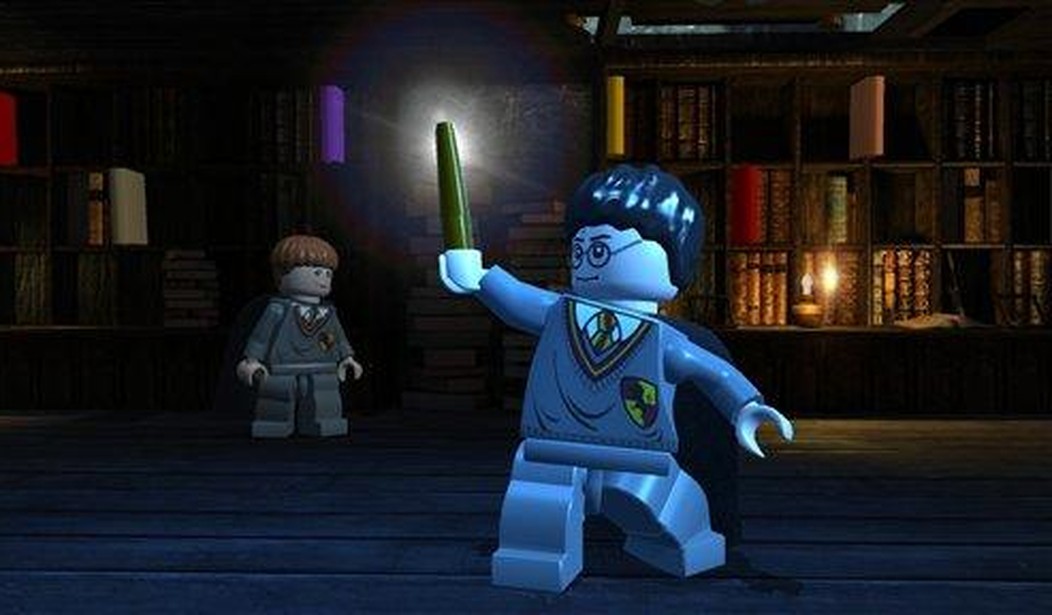The opinions expressed by contributors are their own and do not necessarily represent the views of RedState.com.
If you have not been plugged into the gaming community for the past couple of months, there is a furor taking place. The recent release of a new Harry Potter video game, “Hogwarts Legacy,” has delivered a rift in the community. For months ahead of the February 10 release date the community has been roiling, with people staking out sides regarding the game and the shaming being launched from both sides with elan.
As you could guess, this is rooted in the social upheaval surrounding the creator of the Harry Potter universe and franchises, author J.K. Rowling. Brandon Morse covered today how the BBC had to issue an apology over not countering a charge of anti-trans activism by Rowling. She has been an unapologetic voice declaring womanhood and femininity to be a concrete reality, and this has been deemed to be hostile, dangerous, and even violent. Rowling has been labeled a TERF, accused of generating hate and attacks against various members within the LGBT𝜋 community. So naturally, the release of this new game under the Potter banner has to be regarded as a vehicle of hate.
Social media, of course, has had no shortage of imbalanced outrage at the arrival of this game. One current viral post has declared, without any merit, that Rowling has declared she will take any proceeds from this release and use those funds to support anti-trans programs. Another account claiming to be working at a gaming resource has announced that they know trans people who are looking to change jobs because people at their place of employment are discussing the game – which has yet to even be released.
I’m trying to imagine having the mindset that I need to find new employment because a co-worker at a video game outlet dared to post something about a video game in a Slack channel.
I’m trying, but not even coming close to succeeding. pic.twitter.com/OIN7puPHQM
— Brad Slager: CNN+ Lifetime Subscriber (@MartiniShark) February 9, 2023
But taking things to the asinine level are the gaming media outlets. What is remarkable is that these are the sources who posture as being high-minded while sounding just as imbalanced as the social media cranks. Most emblematic of this has been the site The Gamer, which has nearly been on a yearlong quest against “Legacy.” In a piece written this week by Editor in Chief Stacey Henley — who was the catalyst of that BBC radio piece — the site laid out what it sees as the “test” the release of this game has presented for the gaming press, and how many of these outlets have failed.
How? By either reviewing the game without placing things in proper context or even reviewing the game at all. You get a sense of the tortured approach to this controversy early on in the piece. ”We work in a field very quick to paint sites or writers in extremes, and even when I disagree with an individual viewpoint I’m reluctant to pour on gasoline that will fuel the worst sorts of readers. And yet still, I find myself writing about the writing about Hogwarts Legacy.”
But pour the gas does Henley. “What is the point of your analysis of art when your point boils down to feeling warm and fuzzy when you remember your Gryffindor pyjamas?” This cutting remark is used repeatedly in the column. Then we get more of the conflicted thinking, as Henley declares she will not be naming specific sites in regards to her “test,” and then promptly names two sites, within the same paragraph.

But then we get into the underpinning problem in all of these gaming hysteria think-pieces. Writers are generally supposed to comment and review using a set of metrics to aid the consumer. Playability, plotlines, technical merits, and many other onscreen experiences are generally the key to explaining how a game is to be experienced. But far too often we see this kind of approach employed:
One of the biggest sites in the world…had perhaps the worst disclaimer of the bunch. It opened with a eulogy on how the site has always supported human rights – the site previously publicly withdrew its support of Palestine and criticised employees for not toeing the company line – and explained why the review would not be considering JK Rowling’s views at all.
Why, on Earth, would an outlet’s position on Palestine – unless that was a plotline element – be considered a component in any capacity with any video game review?! But this mindset also sees the need to truck in Rowling’s personal viewpoints when reviewing the game. Or – as we learn – in not reviewing the game. It was announced, in a piece by Henley, that The Gamer would not be conducting reviews or other direct coverage of “Hogwarts Legacy.”
Our position on Hogwarts Legacy is that we will continue to discuss the game as part of wider gaming culture, tackling what it means for gaming, but will not be covering news updates, guides, lists, or formally reviewing the game.
This followed another column, written by the EIC, which laid out the reasons why players should reconsider purchasing and playing “Legacy.”
JK Rowling represents the wave of aggression and hatred that erodes us every day. We don’t like her. We’re angry. If you can’t help, just play with your toys quietly and stay out of our way. Wanting to play Hogwarts Legacy, even buying it at launch and enjoying it, does not make you a transphobe. But it’s asking you to forget about JK Rowling’s obvious bigotry and continue to fund her platform and provide her with ongoing cultural relevance in exchange for playing a video game. It doesn’t make you a bad person if you make that choice, just be sure to make it knowingly.
And now onto the reality. The game is setting records for presales, ahead of this weekend’s official sales launch. These outrage boycotts have not had an impact, at all. The focus on the controversy is akin to a news crew highlighting a protest outside of a packed football stadium. 80,000 people could be supporting something, but the cameras focus on a dozen people in the parking lot with protest signs instead. But the real telling aspect of this is seen at The Gamer itself.
The site has taken its stand, and voiced its opposition to “Hogwarts Legacy.” This is fine, completely their prerogative. But as far as not wanting to support the game and giving it exposure, The Gamer has failed on that account. Henley wrote in one piece on gaming outlets staging similar types of “Legacy” boycotts; “I applaud sites for taking the decision to ignore it completely.” This applause will not be held for her own site, however.
Just since January 30, The Gamer has covered “Hogwarts Legacy” no fewer than 12 times. Henley herself, since the New Year, has penned five pieces on the game to this point. It is unseemly, goes their position, for the company to be profiting off of the supposed intolerant author, but at the same time, The Gamer cannot resist garnering revenue from the traffic their pieces generate.














Join the conversation as a VIP Member